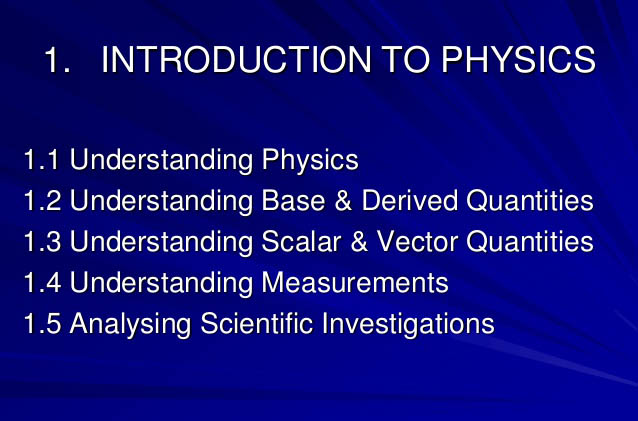When asked on the first day of your Physics class by your teacher, what will you answer? Do you have already an idea about your subject? Physics is defined simply as the study or a branch of knowledge pertaining to energy, matter and their interaction. The area of Physics encompasses from the littlest sub-atomic particles to the all-encompassing Universe in which are truly part of. Physics, in a sense, is connected to almost everything inside and beyond our world.

Since the vastness of Physics is immeasurable, it has been subdivided into different areas—which are still expanding—namely: quantum physics, electronics, bio physics, thermodynamics and astronomy.
By nature, Physics is both experimental and applied science. It follows the procedure of the basic scientific method, allowing to experiment on hypotheses until it is proven to be true in the form of “scientific laws.” More often than not, it is explained or expressed in mathematical equations and sentences. By which these mathematical equations are used to the extent of computing predictions and probabilities.

Physics is also hailed as the most essential form of natural science. Chemistry, biology and mathematics are mere sub-categories under the comprehensive scope of Physics. Chemicals and the human anatomy fall into the category of matter. Further these forms of matter are depicted to have interaction to process their own specific structure, form and role. Thus they are aligned under the scope of Physics. Mathematics is a tool used as how we have mentioned about how mathematical equations are exercised to make necessary predictions.
